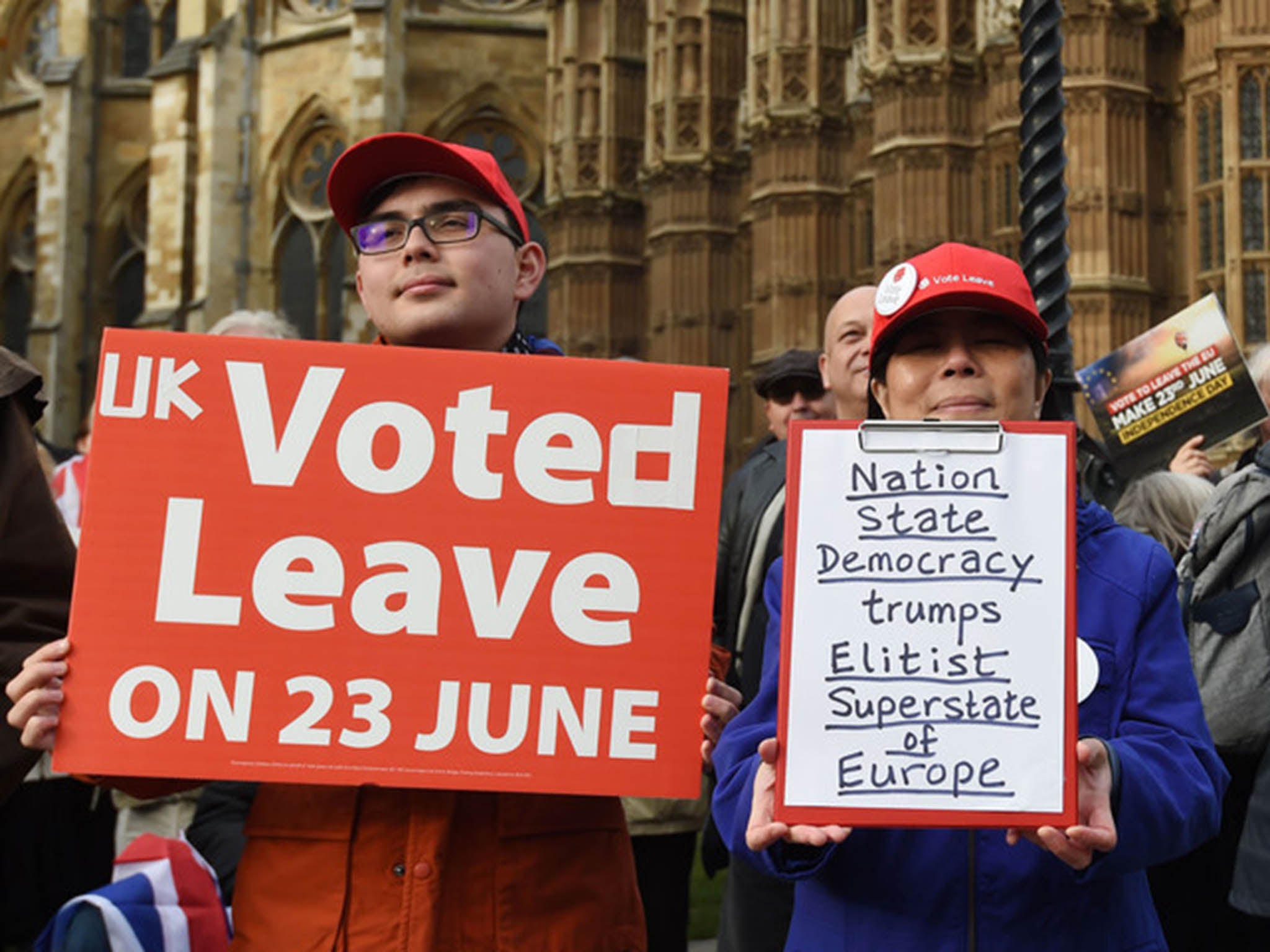Welcome to the age of collective narcissism
A certain mentality has been on display in Western democracies of late – and we don't really understand it

Your support helps us to tell the story
From reproductive rights to climate change to Big Tech, The Independent is on the ground when the story is developing. Whether it's investigating the financials of Elon Musk's pro-Trump PAC or producing our latest documentary, 'The A Word', which shines a light on the American women fighting for reproductive rights, we know how important it is to parse out the facts from the messaging.
At such a critical moment in US history, we need reporters on the ground. Your donation allows us to keep sending journalists to speak to both sides of the story.
The Independent is trusted by Americans across the entire political spectrum. And unlike many other quality news outlets, we choose not to lock Americans out of our reporting and analysis with paywalls. We believe quality journalism should be available to everyone, paid for by those who can afford it.
Your support makes all the difference.Consider slogans such as “Make America great again”, used by Donald Trump, or “Take back control”, used by the Brexit campaign. They suggest that in the US and the UK, the unique position of the nation has somehow been undermined – and that somehow it needs to be restored.
Both slogans were the perfect pitch to mobilise what are called collective narcissists. These are people who want their group to be constantly recognised by others. They are hypersensitive to any signs that it is not.
The central feature of narcissism is emotional dependence on admiration and recognition by others. When that admiration is sought on behalf of a group, narcissism becomes collective. The two forms of narcissism are not strongly related, however. Individual narcissists are not automatically collective narcissists.
The term “collective narcissism” was first used by Theodore Adorno to describe the sentiment that gave support to Nazi rule in Germany in the 1930s. Our ongoing research in the UK and US suggests that people who agreed with the statements on our collective narcissism scale were significantly more likely to report that they voted to leave the European Union in the June 2016 referendum in the UK. They were also more likely to report that they voted for Donald Trump in the US presidential election.
The scale includes statements such as “It really makes me angry when others criticise my group” and “My group deserves special treatment”. Participants are asked to think about a group they might belong to, such as a religion or a nationality, when considering the statements.
We should worry when collective narcissists rise to power because scoring highly on the collective narcissism scale predicts being prejudiced, regardless of people’s age, gender or education.
Collective narcissists are prejudiced selectively. They reject or attack groups that somehow threaten their group’s grandiose image. Collective narcissists also embrace their own bigoted attitudes. They spin and believe in conspiracy theories about the groups they reject, however fantastic they might be.
In studies conducted last year in Poland, Catholic collective narcissists believed there was a gender conspiracy working against them. They agreed with statements like: “Gender (ideology) was created to destroy the Christian tradition”; “Gender is a threat to Christian morality”; and “The purpose of gender is to destroy family”. As a result, collective narcissists rejected anybody who presented progressive views about gender roles or sexuality.
Collective narcissists also desire revenge on anyone who doesn’t sufficiently recognise their group. In our studies, national collective narcissists in the US read a fictional interview with a foreign exchange student who didn’t like some aspects of their exchange experience. After reading unfavourable comments about their country, collective narcissists expressed hostile behavioural intentions towards all compatriots of the exchange student.
The same pattern was repeated when collective narcissists identified themselves as part of a national group. When their group was criticised or not properly recognised, collective narcissists advocated hostile revenge, ranging from insult to injuring. In another study, we suggested to collective narcissists in Poland that new chemical elements were discovered through international collaboration but not named after their country. In response, they advocated hostile confrontation with those who did not want the elements to be named after their country.
Collective narcissists also see insult where no one has seen it before. For example, for a transgression as petty as a joke made by a celebrity about their country’s government, people in our study threatened physical punishment and engaged in schadenfreude, openly rejoicing in the misfortunes of their “offender”.
Have the collective narcissists won?
There seems to be no limit to what collective narcissists can interpret as offensive to their group. Consider inter-group comparisons. In one of our studies, Portuguese collective narcissists were hostile towards Germans because they thought Germany had higher status and more power in the European Union than Portugal. So another group may be rejected, marginalised or otherwise “punished” for being better or even as good as one’s own.

All this suggests that arguments such as “Foreign workers contribute to the national economy” or “Refugees can find jobs and prosper in host countries” may not only fail to convince national collective narcissists, but actually threaten and enrage them. Success for another group or empowerment for a minority threatens the majority’s privileged position. Collective narcissists want to protect the privileged position of their group by undermining other groups’ qualities and motivations.
Consider also that for those who seek recognition for their group, the worst offence is for their group to be ignored. According to collective narcissistic logic, such an offence needs to be avenged. This creates the potential for political antagonism and even violence when groups of this kind feel ignored in political processes. Collective narcissists are more likely to advocate violent revenge for lost grandiosity and gravitate towards similarly minded group members.
This is the sentiment that seems to be currently shaping our world. Collective narcissism was mobilised in support for Brexit and Trump. It won. Collective narcissists’ attitudes and reactions were thus legitimised in leading democratic countries.
The pre-referendum and pre-election rhetoric mobilised collective narcissists’ sense of inter-group threat and reactive inter-group hostility. It was irresponsible to mobilise them, because we don’t really know how to address them constructively.
Our recent data shows that the self-esteem of individuals within groups of collective narcissists is low and their emotions negative. They avoid interpersonal closeness and are vulnerable to shame. Investing in the group’s exaggerated image seems to be their dominant way of fulfilling universal need for positive social connections.
Perhaps being involved in democratic processes and institutions can equip collective narcissists with more constructive and less parochial ways of connecting to others. To discourage further escalation of inter-group animosities, we need to understand collective narcissists better as it’s clear they are not going away.
Agnieszka Golec de Zavala is a senior lecturer in psychology at Goldsmiths, University of London. This article first appeared on The Conversation (theconversation.com)
Join our commenting forum
Join thought-provoking conversations, follow other Independent readers and see their replies
Comments